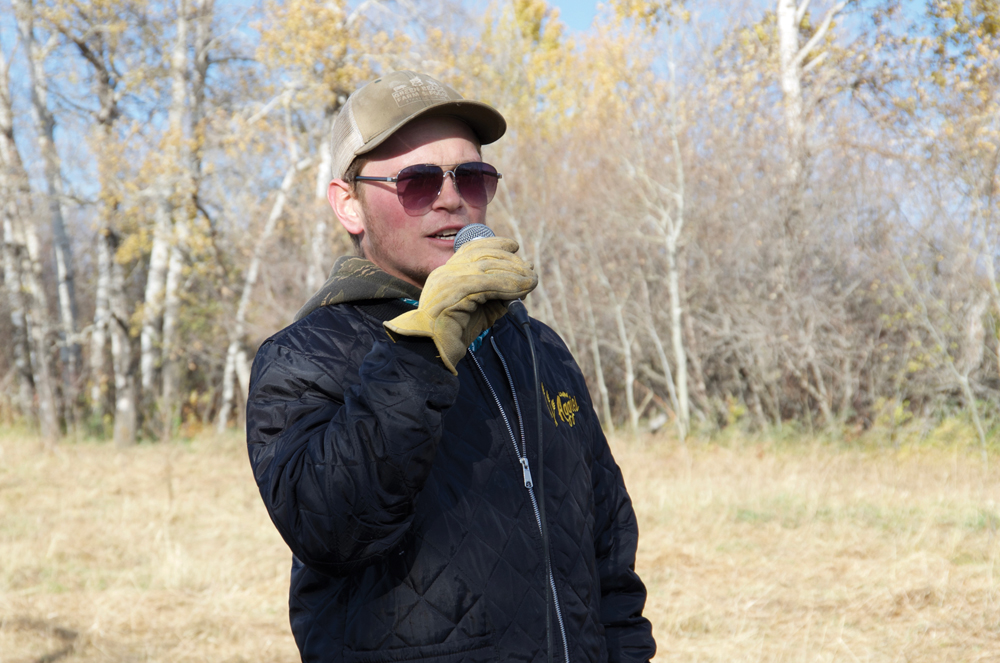Drastic changes in and outside Canada should prompt a new agri-food policy, according to a new report from industry experts.
Agri-Food Economic Systems’ latest policy note identified 10 pressures on the industry in Canada today, each one varying in “magnitude, significance, urgency and permanence.”
The report cites the majority loss of the food-service market due to the COVID-19 pandemic and uncertainty over the market’s ability to recover as one pressure on agri-food in Canada. The threat of meat-processing facilities suddenly closing is also identified.
The authors highlight labour as a major concern going forward as well.
Read Also

Koscielny in as MFGA board chair
Zack Koscielny is one of several more youthful faces chosen for the Manitoba Forage and Grassland Association’s incoming board.
Each year there are “practical difficulties and uncertainties” in accessing foreign workers to assist in horticultural enterprises, but the issue was brought to the forefront of the public’s mind as a result of the pandemic.
Foreign worker illnesses and deaths related to COVID-19 increased negative attention towards the practice of imported labour, threatening its long-term existence.
“At the same time, the Canadian workforce is not well aligned with repeated laborious work — including farm work and food processing. This could prove to be among the principal strategic issues exposed by the COVID-19 pandemic, and it is global in scope,” says the report.
Another domestic challenge is over the inequities in perceived public support for different commodities, which features commodity groups fighting over a limited amount of available government supports.
The report notes that current business risk management (BRM) programming in Canada is based on long-held experiences of rules-based trade and a stable agri-food policy environment, governed by five-year funding arrangements between provinces and the federal government; but “this experience may not be indicative of what is to come.”
To that end, the policy report questions if current discussions around BRM programming to tweak existing programs are necessary.
“Industry desires for program design changes are predicated on past market volatility and needs for stabilization,” it says, adding industry and government may be challenged to think about a much more unstable farm operating income outlook and related BRM programming.
At the same time, most field crop outlooks have a bearish price outlook, “emboldened by historic agricultural support levels in the U.S., and the prospect of bumper crops in key growing areas and burdensome stocks going into the fall harvest.”
Authors of the report highlight Canada’s unemployment rate and slumping incomes having the potential to impact food demand, while on the other hand government aid packages across the economy employed to combat the impact of the pandemic could be inflationary.
Shrinking public budgets and a bad economy can also increase the potential for a greater sense of provincialism, in which Canadians are competing to grow or retain agri-food industries against one another, rather than in co-operation.
“These strains could occur precisely as agri-food must take a more refined and strategic view of investment in food processing — as market access for farm products becomes increasingly uncertain and volatile,” says the report.
In essence, the authors suggest provinces be more mindful of squabbling and instead aim to work together to meet this new set of challenges being faced by the agri-food industry.
“As rules-based trade in agri-food retreats — most notably with dramatic increases in U.S. farm support — the solid footing for today’s federal-provincial-territorial agreements in agriculture is weakened,” Douglas Hedley, Agri-Food Economic Systems associate and co-author of the policy note said in a press release. “A descent into provincialism in agri-food policy in Canada would be disastrous, but it cannot be ruled out without awareness and effort.”
These domestic challenges are unfolding against a backdrop of turbulent world politics, perhaps highlighted best by the “increased erosion in the integrity of rules-based trade.”
Uncertainty over food security during the pandemic prompted the constraint of exports in some nations, while increasing tensions between the United States and China relegating other major agri-food suppliers (like Canada) to a “second tier” internationally.
The policy note says Canada will need to identify and develop specific bilateral and plurilateral trade relationships to “effectively use our agri-food capacity, while playing an active role in revitalizing or at least halting the decline in the rules-based system.”
“All of these events in domestic and international markets have dramatically increased the volatility in agricultural prices and trade flows,” says the report. “Markets are not only responding to volatile frictional global supply-and-demand pressures, but also to the increasingly political and unpredictable nature of trade and foreign affairs actions.”
“Our great difficulty is to fully come to grips with the situation that lies ahead of us,” report co-author Al Mussell, Agri-Food Economic Systems research lead said in a press release.
“Our challenge has been one of managing the abundance of farm and food products at price levels and volatility that provide farm profitability and an efficient investment climate. But that was in a more secure trade and geopolitical environment. The challenge of abundance remains, but we must now also consider food security and the risk of sudden collapse of segments in fashioning agri-food policy.”
















